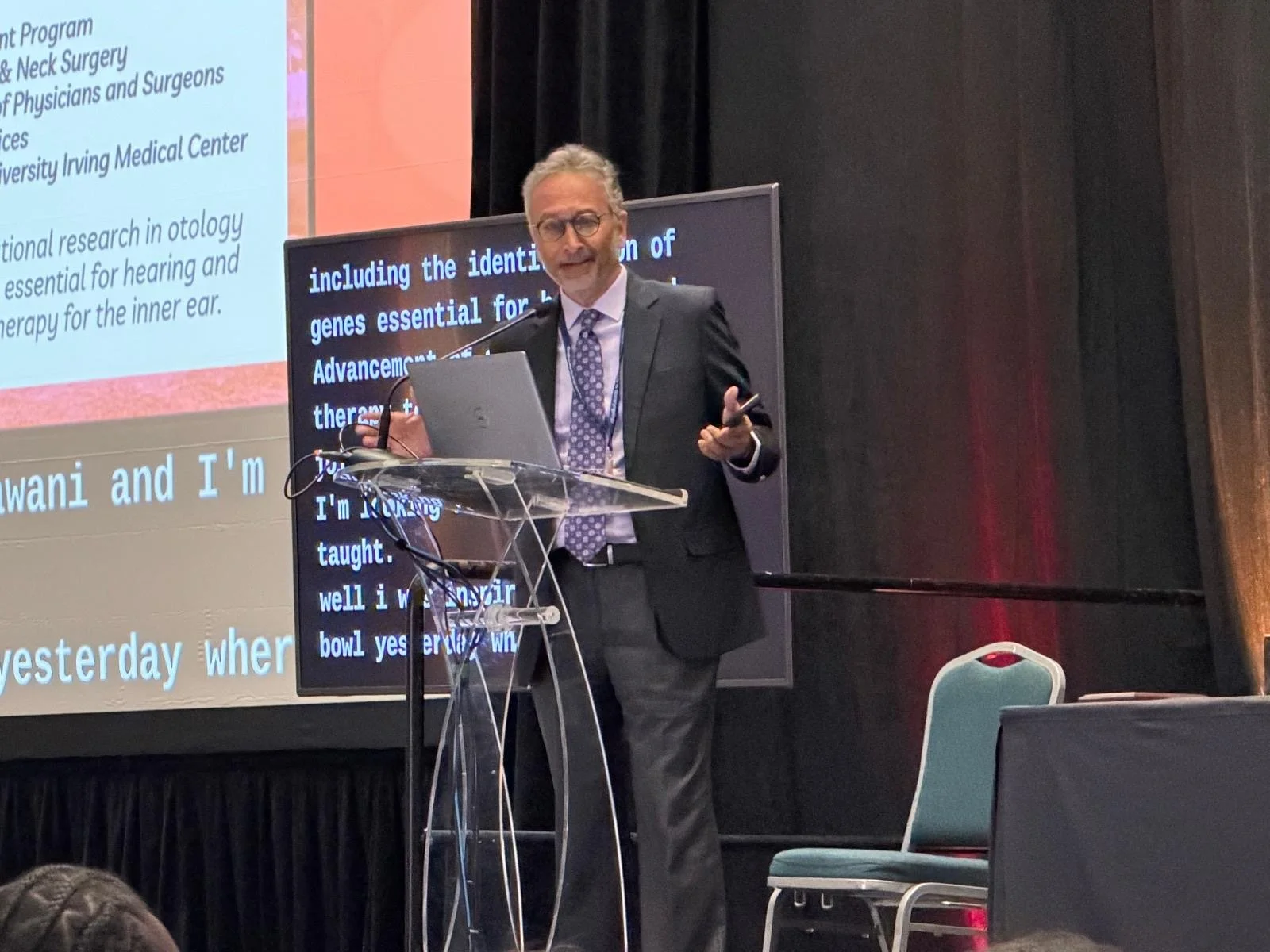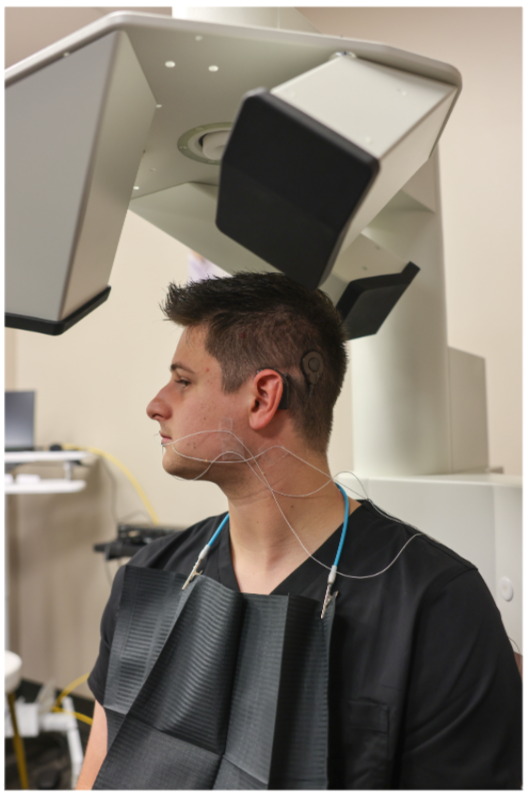There has been a lot of news lately—in the hearing health space—that we want to highlight.
“Hearing Loss May Play a Bigger Role in Dementia Than Previously Thought,” from MedPage Today, reports these key takeaways:
Up to 32 percent of dementia cases may be attributable to audiometric hearing loss, U.S. data suggested
Population attributable fractions were similar for both mild and moderate or greater hearing loss
Self-reported hearing loss was not associated with increased dementia risk
The study by Johns Hopkins researchers appeared in JAMA Otolaryngology–Head & Neck Surgery on April 17, 2025.
Credit: @sharonp/Unsplash
MedPage Today cites expert reactions to the report: “PAFs [population attributable factors] assume a causal relationship and because this study used observational data, it doesn't provide evidence on whether hearing impairment causes dementia, noted Thomas Littlejohns, Ph.D., of the University of Oxford in England, on the U.K. Science Media Center website.”
Littlejohns writes on the website, "For example, we can't tell from these results whether hearing problems are related to dementia through other factors common to aging or whether hearing problems are a consequence, rather than a cause, of dementia. The latter is a particular problem in observational data, as dementia develops over many years and it is possible that hearing problems emerge in the early stages of dementia (similar to memory problems) before a clinical diagnosis is made."
The researchers conclude: “Future research quantifying population attributable fractions should carefully consider which measures are used to define hearing loss, as self-reporting may underestimate hearing-associated dementia risk.”
Speaking of brain health:
“Using Tech Might Actually Protect Your Brain As You Age,” from Newsweek, reports:
“Older adults who frequently use digital technology may experience slower rates of cognitive decline, according to a sweeping new analysis that challenges long-standing concerns about so-called ‘digital dementia.’” The technology includes using smartphones, computers, and the internet.
Newsweek says the study in the journal Nature Human Behaviour, published April 14, 2025, “reviewed 57 studies involving more than 411,000 adults across the globe, with an average participant age of nearly 69….
“Importantly, they also found consistent results in longitudinal studies, which tracked participants over time—on average for more than six years—suggesting a lower risk of cognitive decline among frequent tech users.
“Dr. Davide Bruno, reader in psychology at Liverpool John Moores University in the U.K. who was not involved in the study said: ‘A lot of variables are controlled for in this study, and the results are promising, but a lot of our cognitive resilience may well be genetically determined, which could also lead to greater ease with using technology.’”
“A Unique Sound Alleviates Motion Sickness,” from Science Daily, reports:
“A research group led by Takumi Kagawa and Masashi Kato at Nagoya University Graduate School of Medicine has discovered that using ‘a unique sound stimulation technology’—a device that stimulates the inner ear with a specific wavelength of sound—reduces motion sickness. Even a single minute of stimulation reduced the staggering and discomfort felt by people that read in a moving vehicle. The results, published in Environmental Health and Preventive Medicine, suggest a simple and effective way to treat this common disorder.”
The Science Daily report continues, “Using a mouse model and humans, the researchers identified a unique sound at 100 Hz as being the optimal frequency. ‘Vibrations at the unique sound stimulate the otolithic organs in the inner ear, which detect linear acceleration and gravity,’ Kato explains, [adding,] ‘Given that the stimulus level is well below workplace noise safety standards, this stimulation is expected to be safe when used properly.’” The report appears in Volume 30 (April 2025) of the journal.
“Tapping Your Finger May Aid Speech Comprehension in Noise, Study Finds,” from Hearing Health & Technology Matters (HHTM), reports:
Researchers at Aix-Marseille University in France found that “a simple rhythmic movement—such as finger-tapping—can significantly improve one’s ability to understand speech in noisy settings. The findings, published in the Proceedings of the Royal Society B, indicate that engaging in rhythmic motor activity primes the brain to better process speech amid background noise.”
Whether the research subjects practiced self-paced tapping, cued vs. self tapping (following an external beat or not), or even vocalizing (speaking a word before listening), their speech comprehension improved, according to the paper published April 9, 2025.
HHTM concludes, “These findings reinforce the idea that the motor system plays a functional role in anticipating and aligning with the temporal dynamics of speech. By rhythmically activating motor pathways, individuals may improve their brain’s ability to track speech patterns, especially in environments with competing sounds.
“The practical implications are promising. Whether helping people with hearing difficulties or professionals working in noisy environments, simple actions like rhythmic tapping or vocalizing could serve as low-tech strategies to enhance communication.”
“Workplace Impact of Tinnitus and Hyperacusis Highlighted in New Research,” also from HHTM, reports:
“A new study published in the International Journal of Audiology highlights the significant toll that tinnitus and hyperacusis can take on an individual’s ability to work. The research, conducted among Norwegian patients, shows that both conditions are closely tied to reduced work capacity, with hyperacusis also serving as a strong predictor of work absence….
“The researchers noted that ‘more than 50 percent of the patients stated that their capacity to work was affected by tinnitus and hyperacusis.’ However, they caution that reduced work capacity does not necessarily equate to complete work disability. Instead, it points to a need for accommodations and individualized support strategies to help patients remain engaged in the workforce.” The paper appeared in the journal on March 13, 2025.
Follow Hearing Health Foundation’s social media accounts for news updates.







Our new public service announcement “Let’s Listen Smart” recognizes that life is loud—and it’s also fun. And the last thing we want to do is stop having fun! We just need to listen responsibly.